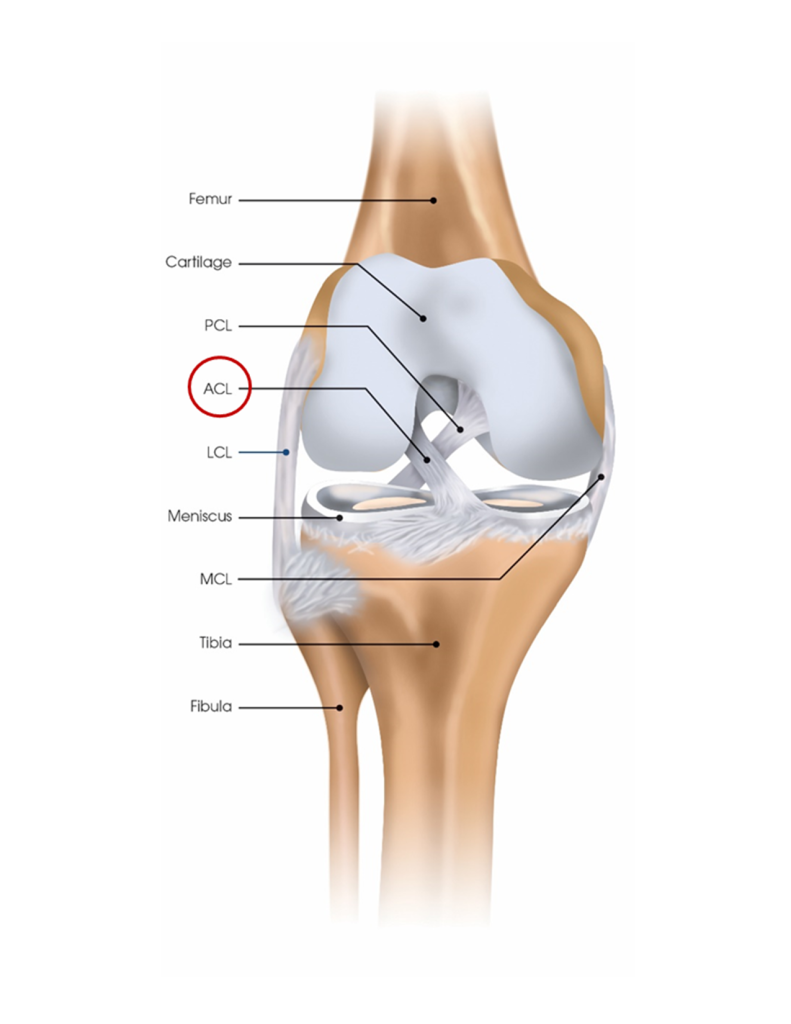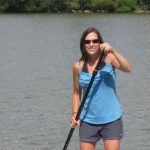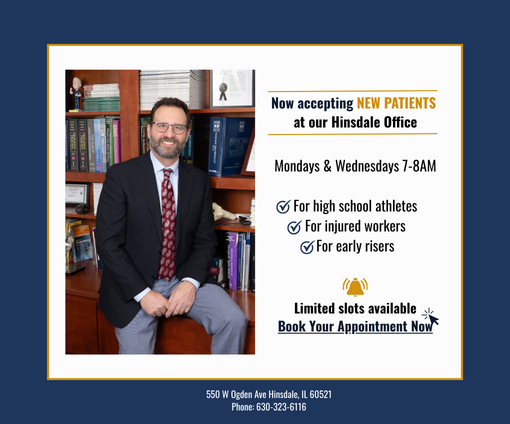
Strained knee sends Bears’ running back to the IR bench
With 11 minutes to play in the game, Bear’s running back David Montgomery gets the call and carries the ball five yards as he tries to solidify the Bears 24-14 victory over the Detroit Lions. Instead, Montgomery’s efforts earned him a seat on the team’s injured reserve list for three to five weeks.
Speculation by the play-by-play announcers was an anterior cruciate ligament (ACL) tear to Montgomery’s left knee. However, early tests seemed to indicate he had hyperextended his knee and not suffered a ligament tear and a season ending injury. Montgomery was scheduled to have an MRI to confirm a lesser knee sprain or ACL injury.
According to Dr. Steven Chudik, orthopaedic surgeon and sports medicine physician with the Shoulder, Knee and Sports Medicine Injury Clinic in Westmont and Western Springs, Ill., the team physician most likely X-rayed Montgomery’s knee and performed a Lachman’s maneuver to test for an ACL injury before ordering the MRI.
“The Lachman Test is a simple, noninvasive physical exam a sports medicine physician can perform right on the field, if needed, when there’s concern for a torn ACL ligament,” Dr. Chudik explained. “The test relies on proper positioning and technique and is regarded as the most sensitive and specific test for diagnosing acute ACL injuries,” he added.
Although Montgomery didn’t appear to suffer an ACL tear, a lesser sprain still requires proper treatment and rehabilitation. A sprain is a partial or complete injury or tear to a ligament resulting from direct or indirect trauma to a joint. Ligaments run between bones of a joint connecting them to provide stability and allow proper movement of a joint.
Sprains usually are graded by the severity of the tear. Grade 1 sprains represent partial tears with no loss of stability. Grade 2 sprains also represent partial tears with some loss of stability. Grade 3 sprains represent complete tears. Treatment of ligament sprains, including early motion, immobilization, surgical repair, or surgical reconstruction, is dependent on the joint injured, and the grade and age of the injury. Many Grade 1 and Grade 2 sprains heal within four to six weeks.
You don’t have to be an athlete to sprain your knee. Knee sprains can occur from any activity that forces your knee out of its natural position. ACL sprains often are associated with running and cutting sports such as soccer and football; or in activities that require jumping or twisting such as basketball or gymnastics.
Many knee sprains can heal without surgery provided the knee is completely rehabilitated before returning to play or resuming normal activities. Dr. Chudik offers a special, research-based physical therapy program he designed to return the patient to sport following a knee injury and/or surgery.
The program includes one-on-one care under the direction of a specially trained physical therapist and/or athletic trainer, baseline testing, assessment of functional strength and limb symmetry and a qualitative and quantitative evaluation of functional movements. Upon completion, Dr. Chudik recommends performing final return to sport testing which will determine if the knee is ready to return to sport. A “pass” means the athlete can return to sport safely with a decreased risk for re-injury.
If you hurt your knee, you should make an appointment with a knee specialist like Dr. Chudik to get an expert examination and diagnosis so the proper treatment and rehabilitation can be started as soon as possible.
If you would like to get assistance from Dr. Chudik, please email contactus@chudikmd.com, schedule online at https://www.stevenchudikmd.com/schedule-online/, or call 630-324-0402.








